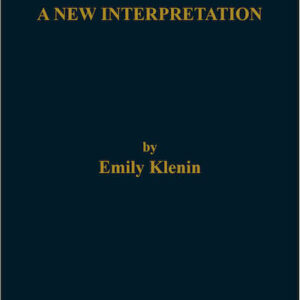
Animacy in Russian: A New Interpretation
By Emily Klenin (NHC Fellow, 1979–80) A group of connected essays which study the phenomenon in both its diachronic and synchronic states.

By Emily Klenin (NHC Fellow, 1979–80) A group of connected essays which study the phenomenon in both its diachronic and synchronic states.

By Daniel C. Snell (NHC Fellow, 1989–90) This book presents 125 previously unpublished Neo-Sumerian archival texts from the period around 2030 B.C.E. found in three different sites in southern Iraq. The cuneiform documents, hand-copied by the late Carl H. Lager, are accompanied by detailed indices and explanatory notes by Daniel Snell that guide the reader … Continued
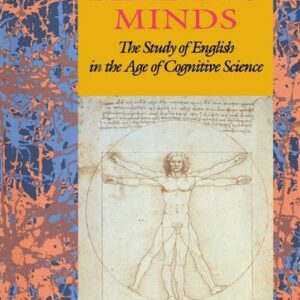
By Mark Turner (NHC Fellow, 1989–90) The great adventure of modern cognitive science, the discovery of the human mind, will fundamentally revise our concept of what it means to be human. Drawing together the classical conception of the language arts, the Renaissance sense of scientific discovery, and the modern study of the mind, Mark Turner … Continued
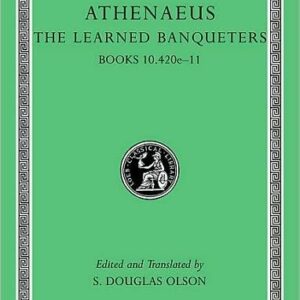
By AthenaeusEdited and translated by S. Douglas Olson (NHC Fellow, 2008–09) In The Learned Banqueters, Athenaeus describes a series of dinner parties at which the guests quote extensively from Greek literature. The work (which dates to the very end of the second century CE) is amusing reading and of extraordinary value as a treasury of quotations from works … Continued
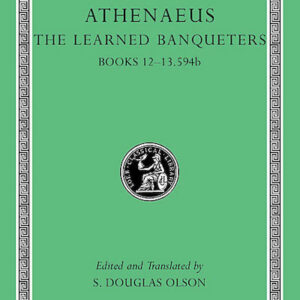
By AthenaeusEdited and translated by S. Douglas Olson (NHC Fellow, 2008–09) In The Learned Banqueters, Athenaeus describes a series of dinner parties at which the guests quote extensively from Greek literature. The work (which dates to the very end of the second century CE) is amusing reading and of extraordinary value as a treasury of quotations from works … Continued
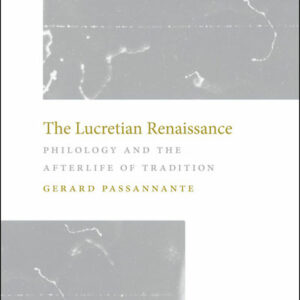
By Gerard Passannante (NHC Fellow, 2010–11) With The Lucretian Renaissance, Gerard Passannante offers a radical rethinking of a familiar narrative: the rise of materialism in early modern Europe. Passannante begins by taking up the ancient philosophical notion that the world is composed of two fundamental opposites: atoms, as the philosopher Epicurus theorized, intrinsically unchangeable and moving … Continued
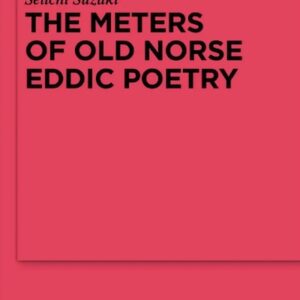
By Seiichi Suzuki (NHC Fellow, 2012–13) This book is a formal and functional study of the three distinct meters of Old Norse eddic poetry, fornyrðislag, málaháttr, and ljóðaháttr. It provides a systematic account of these archaic meters, both synchronic and diachronic, and from a comparative Germanic perspective; particularly concerned with Norse innovations in metrical practice, Suzuki explores how and why … Continued
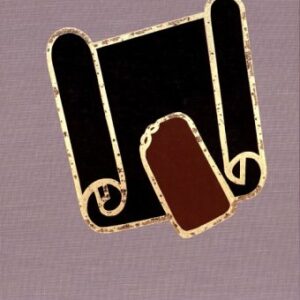
Edited by Daniel C. Snell (NHC Fellow, 1989–90), Mark E. Cohen, David B. Weisberg, and William W. Hallo
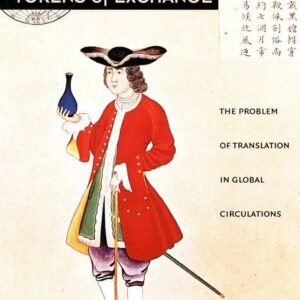
Edited by Lydia H. Liu (NHC Fellow, 1997–98) The problem of translation has become increasingly central to critical reflections on modernity and its universalizing processes. Approaching translation as a symbolic and material exchange among peoples and civilizations—and not as a purely linguistic or literary matter, the essays in Tokens of Exchange focus on China and its interactions … Continued
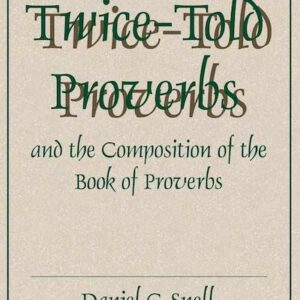
By Daniel C. Snell (NHC Fellow, 1989–90) The Book of Proverbs is permeated with patterns of repetition, yet to date no major work on Proverbs has dealt adequately with this phenomenon. Snell catalogs and analyzes repetitive words and verses and uses the data to draw conclusions about the composition of the book. He sees four … Continued